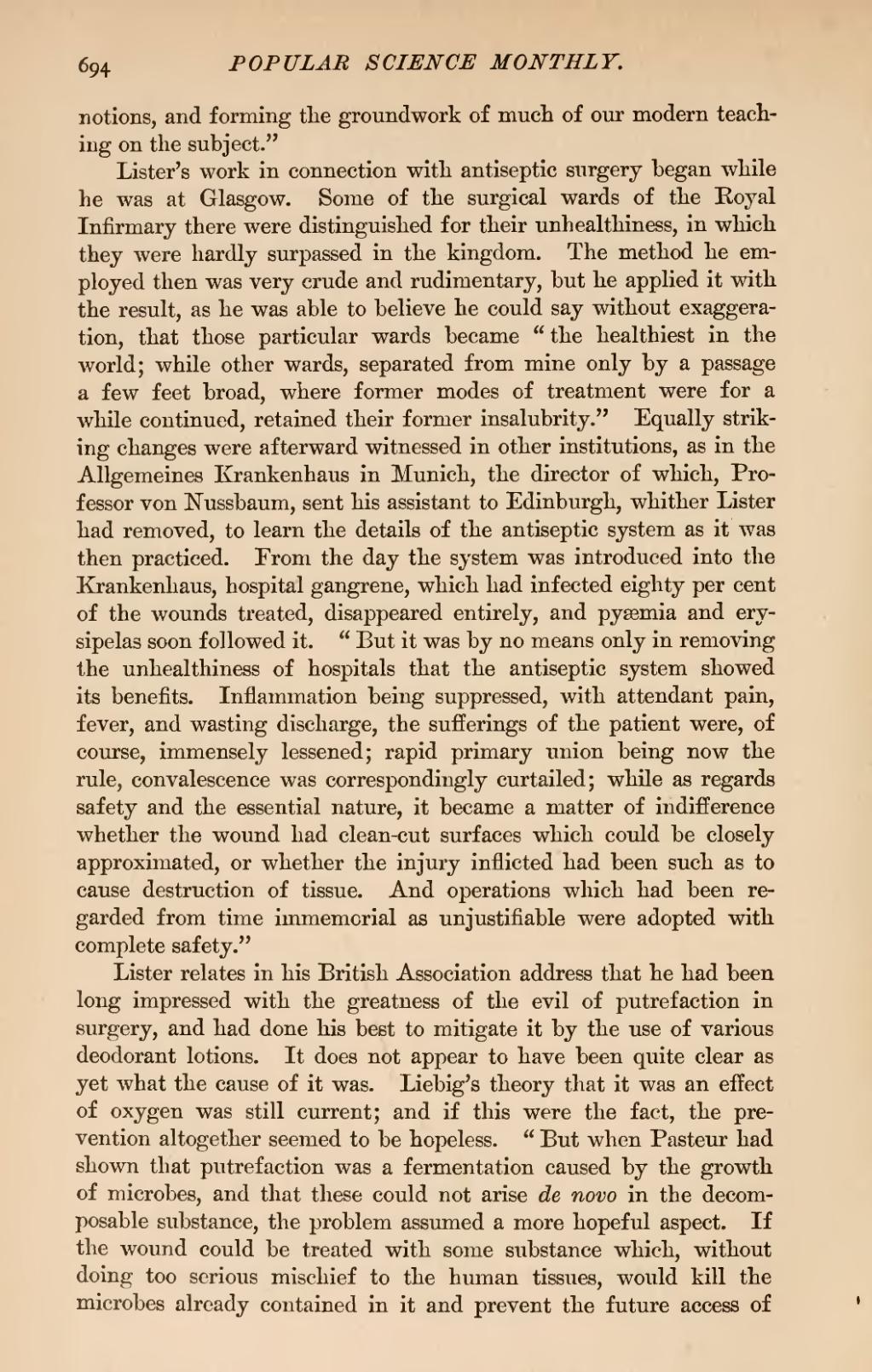notions, and forming the groundwork of much of our modern teaching on the subject."
Lister's work in connection with antiseptic surgery began while he was at Glasgow. Some of the surgical wards of the Royal Infirmary there were distinguished for their unhealthiness, in which they were hardly surpassed in the kingdom. The method he employed then was very crude and rudimentary, but he applied it with the result, as he was able to believe he could say without exaggeration, that those particular wards became "the healthiest in the world; while other wards, separated from mine only by a passage a few feet broad, where former modes of treatment were for a while continued, retained their former insalubrity." Equally striking changes were afterward witnessed in other institutions, as in the Allgemeines Krankenhaus in Munich, the director of which, Professor von Nussbaum, sent his assistant to Edinburgh, whither Lister had removed, to learn the details of the antiseptic system as it was then practiced. From the day the system was introduced into the Krankenhaus, hospital gangrene, which had infected eighty per cent of the wounds treated, disappeared entirely, and pyæmia and erysipelas soon followed it. "But it was by no means only in removing the unhealthiness of hospitals that the antiseptic system showed its benefits. Inflammation being suppressed, with attendant pain, fever, and wasting discharge, the sufferings of the patient were, of course, immensely lessened; rapid primary union being now the rule, convalescence was correspondingly curtailed; while as regards safety and the essential nature, it became a matter of indifference whether the wound had clean-cut surfaces which could be closely approximated, or whether the injury inflicted had been such as to cause destruction of tissue. And operations which had been regarded from time immemorial as unjustifiable were adopted with complete safety."
Lister relates in his British Association address that he had been long impressed with the greatness of the evil of putrefaction in surgery, and had done his best to mitigate it by the use of various deodorant lotions. It does not appear to have been quite clear as yet what the cause of it was. Liebig's theory that it was an effect of oxygen was still current; and if this were the fact, the prevention altogether seemed to be hopeless. "But when Pasteur had shown that putrefaction was a fermentation caused by the growth of microbes, and that these could not arise de novo in the decomposable substance, the problem assumed a more hopeful aspect. If the wound could be treated with some substance which, without doing too serious mischief to the human tissues, would kill the microbes already contained in it and prevent the future access of

